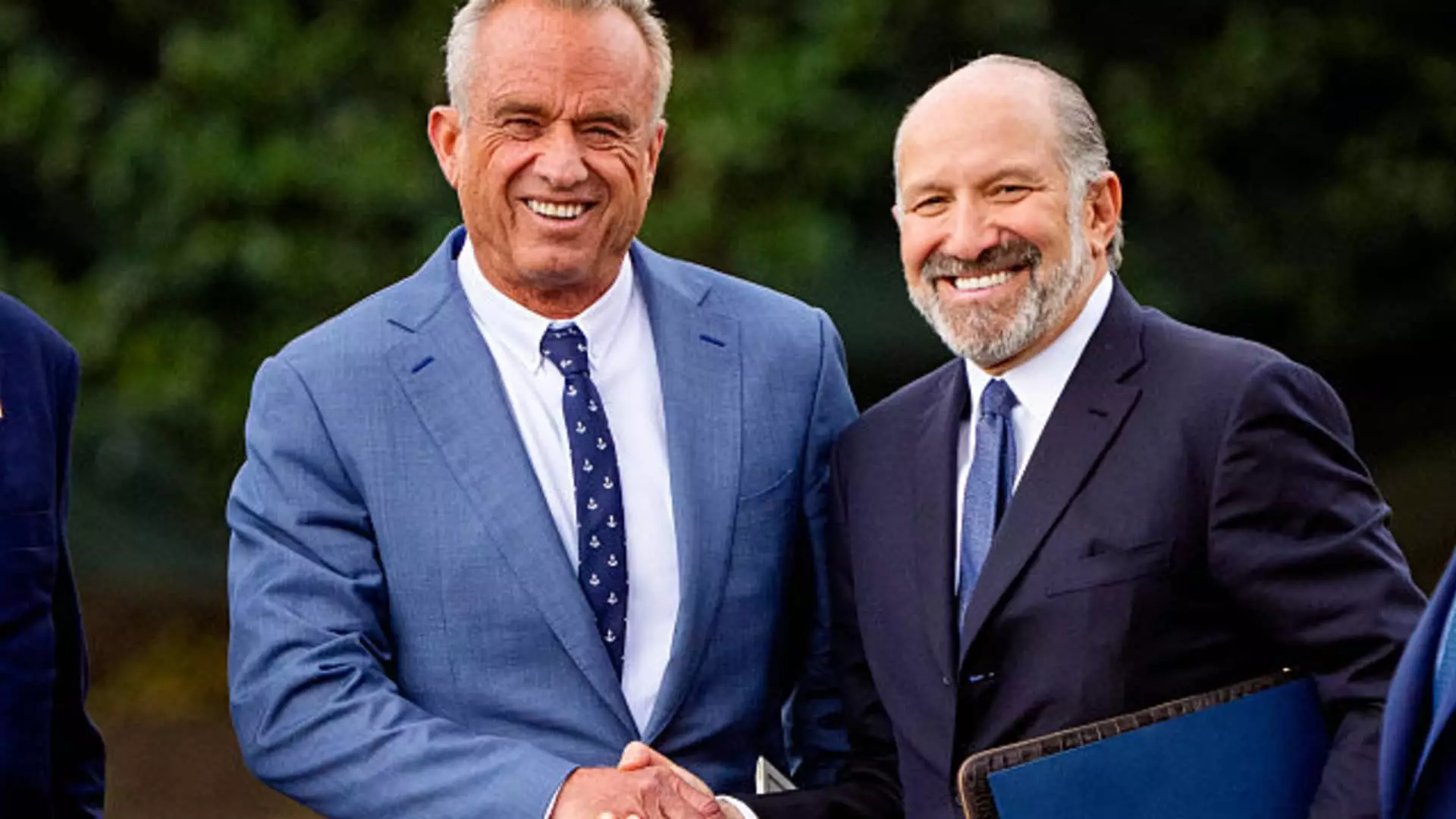The recent appointment of Robert F. Kennedy Jr. as Health and Human Services (HHS) Secretary marks a dangerous chapter in public health policy—a chapter fraught with political opportunism that puts countless lives at risk. As a self-proclaimed anti-vaccine advocate, Kennedy lacks the qualifications necessary to helm an agency designed to protect American health. His track record should send shivers down the spine of any responsible citizen concerned about the intersection of science and governance. The ramifications of such a figure heading a vital health agency can be deeply damaging, affecting trust in medical institutions and the well-being of ordinary Americans.
Kennedy’s history of promoting unverified treatments for serious illnesses is alarming enough, but it goes further. Research analysts from Cantor Fitzgerald, an investment firm led by individuals with a notable history of political involvement, recently weighed in, underscoring the absurdity of appointing someone with such clear anti-science sentiments to oversee public health. Their unequivocal stance illustrates that this isn’t merely an internal issue within HHS but a wider concern that radiates throughout the American healthcare landscape. When even moderate analysts begin to sound the alarm, we should take that seriously—this is not just political posturing.
Vaccination Skepticism: A Direct Threat to Herd Immunity
Kennedy’s public downplaying of essential vaccinations, like the measles, mumps, and rubella (MMR) vaccine, poses a straightforward threat to collective health. The legitimacy of vaccinations has been consistently supported by robust scientific evidence, a fact that should sidestep the sensationalism often ushered by anti-vaccine proponents. Reports indicate that his rhetoric is not merely unfounded but has the potential to sway public opinion, leading to a dangerous decline in vaccination rates. When a significant portion of the populace begins to adopt a hesitancy towards routine immunizations, the risk of resurgence in preventable diseases skyrockets. America has already witnessed the unsettling reality of this with outbreaks.
The Centers for Disease Control and Prevention (CDC), although a trusted institution, appears to be buckling under political pressures, as it weakens its stance by entertaining flawed studies that probe discredited notions linking vaccines to autism. By giving credence to these claimants, we risk undermining decades of research that validates vaccines as a cornerstone of public health. Pushing out esteemed public health leaders like Peter Marks, only to accommodate an anti-science agenda, is symptomatic of a broader systemic issue in government where politics overpower vital health directives.
Political Gamesmanship Over Practical Science
The clear fallout from Kennedy’s appointment is disruptive—not only for public confidence in vaccines but also in the leadership of HHS itself. As noted analysts emphasize, Kennedy’s so-called expertise lacks credibility, built more on anecdotal evidence rather than evidence-based science. An individual without a grasp of causality versus correlation should not be guiding health policy for an entire nation. When decisions that should be grounded in research and public welfare are instead influenced by personal beliefs or ideologies, society pays the price.
The stock market’s immediate reaction to Marks’ resignation underscores a critical point: Investors are acutely aware that actions taken within the HHS have far-reaching implications, not just for pharmaceutical stock prices, but for public health initiatives essential for combating health crises. As vaccine manufacturer stocks took significant hits, the analysts’ focus on the bigger picture highlights that the matter transcends financial markets. Public health extends beyond commerce; it embodies the very fabric of how society prevents diseases and maintains a healthy population.
A Call to Action: The Onus Is on Us
The past has shown us that public health can quickly devolve into a politicized battleground, particularly when unqualified individuals are placed at the helm. The gravity of this situation cannot be overstated: each dismissal of science today risks lives tomorrow. Health agencies should not capitulate to narratives that prioritize personal freedoms over community welfare, especially when those narratives have no basis in academic or medical rigor. The sad irony is that the misinformation propagated by figures like Kennedy could just as easily impact vulnerable populations who depend heavily on vaccinations.
Citizens, particularly those who cherish evidence-based policymaking, should hold their elected representatives accountable. Our collective ability to discern credible science from quackery is vital—enabling us to resist narratives that threaten the health foundations built over decades. The HHS should be led by individuals who view public health through a lens of empirical evidence rather than personal belief systems. It’s a critical juncture where the consequences of complacency are too great for us to ignore.

